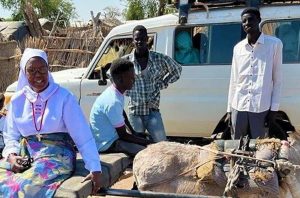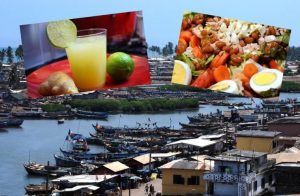How does the Ecumenical Community of Taizé plan to promote social development in Europe and in the world and how can it help to face the challenges of today? An answer from Brother Aloïs Löser, prior of Taizé..
Every life consecrated to the service of God and neighbour is a parable. A parable does not impose or even seek to prove anything. In a world closed in itself, it opens a window to another world and allows us a glance at the infinite. Whoever lives in this world has, so to speak, through Jesus Christ, an anchor in God and is able to weather the storms.
We, the Brothers of the community, wish to be such a “parable of the Community”. Community, reconciliation and confidence are key concepts in Taizé. In this way we mean show that a community can be a “workshop of fraternal life together”.
This search for community and brotherhood challenges us especially in two areas. Firstly, that of the reconciliation of Christians and secondly, that of different cultures living together. Our community is composed of Catholics and Protestants and, occasionally, some Orthodox monks come to live with us for some time. In this way, we want to anticipate the longed-for unity of Christians. We may consider the story of Taizé as an attempt to come together “under the same roof”. We number about a hundred Brothers from around thirty different countries living under the same roof. Three times a day we gather for prayer in common under the roof of the church of reconciliation.
The second part of our search for fraternal community is that of different cultures living together. In relations between ourselves, we are sometimes unaware and doubtless make some mistakes. But there is also a deeper problem which does not depend on us: it happens that the distance between the different “faces” of humanity that we represent is too great, sometimes due to the wounds caused by the history of our countries and continents.
We do not always succeed in bridging these gaps. This is something that saddens us and we have to ask ourselves what we should do. Above all, we must not let ourselves be paralysed; we must not stop but continue to seek reconciliation and reconciliation. We must not pull back out of fear of others; we must not judge them and we must resist giving the impression that we are ourselves judged. It is important not to interpret things negatively but to discuss the problems that arise openly – and never, for any reason, refuse anyone fraternal communion.
This parable of the community that we Brothers live and in which young people participate, is meaningful also for Europe, especially in these difficult times. The continent will achieve unity only when all the countries begin to dialogue in a deeper way among themselves and seek to understand each other. Each country, large or small, must find a hearing and respect for its peculiarities. It is only by seeking to immerse ourselves in the others that we can understand contrasting attitudes and avoid emotive reactions.
At this point, I would like to respond to a very delicate problem facing Europe today – that of the flow of immigrants into our continent.
Throughout the world, people are forced to leave their countries. Their situation is so unbearable that no borders can stop them. In this matter, however we react with worry and concern, nothing changes. Some say, “we cannot take them all”.
No one can deny that the rich countries are co-responsible for the historical wounds and the ecological imbalance that provokes great population movements in different parts of the world, and this continues, especially in Africa, the Near East and Central America. In fact, the political and economic decisions that provoke instability in other continents are still being taken in the well-to-do countries.
It is time now for the western countries to overcome their fear of foreigners and other cultures and begin definitively to bring their way of life into line with the new situations.
The flow of fleeing people is a great challenge to us but, for Europe, it can be an opportunity to be more open and more helpful. This applies already within Europe itself. Only if the countries of Europe together face up to the challenge can we avoid seeing the situation placing excessive burdens on some people. Many young people are convinced that Europe can continue to grow only if we seek that which we have in common at a deeper level. But Europe must not only be united within itself; it must be open also to other continents and help other countries in difficult times.
When we go out to people who are poorer than ourselves, we experience great joy. In Taizé, we continually experience this. When we avoid leaving these people alone in their need and take time to listen to them and know all they have suffered, often we find deep friendships. I am always saying to the refugees we have taken in, “God sent you to us!”
Nor must we ever forget that in all our countries, different cultures have lived together for a long time. Even with people who have lived for a long time among us and with us, we must seek personal contact and build bridges. Nothing can take the place of personal contact. This is especially true in the case of Islam. Muslims and Christians can together offer signs of peace and oppose “violence in the name of God”. To isolate ourselves within the confines of Europe would be to enter a cul-de-sac. Both Europeans and refugees share in brotherhood the one path towards peace.





